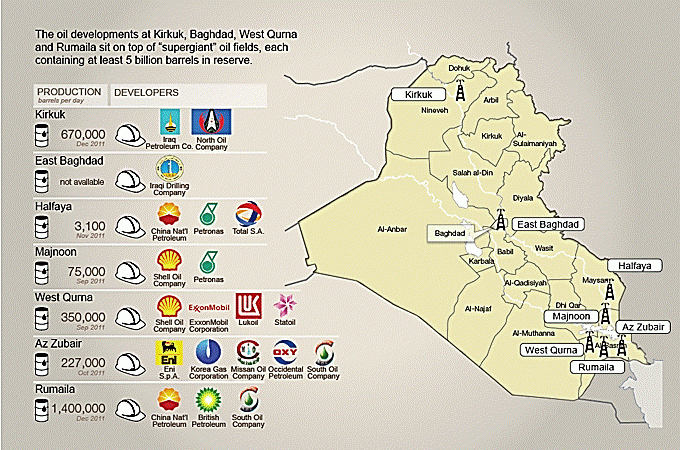Will Iraq be back to square one with increasing violence?

Entry posted by hemanthaa@mail.com ·
1,132 views
- iraq
- iraq oil
- iraq crude
- oil
- oil price
- crude oil price
- middle east
- iran
- iraqi conflict
- basra
- the twin suicide bombings in baghdad the iraqi capital
- once again shows the vulnerability of the oil-rich nation in a perpetually volatile region
- especially when the west started gradually pulling out its troops. although iraqi leadership talks with pr

The twin suicide bombings in Baghdad, the Iraqi capital, once again shows the vulnerability of the oil-rich nation in a perpetually volatile region, especially when the West started gradually pulling out its troops.
Although Iraqi leadership talks with pride about the country being free from foreign interference, the situation on the ground is far from being conducive for it – judging by the daily protests by the people over corruption, mismanagement, lack of basic care and of course, deteriorating security concerns.
After the fall of Saddam Hussain in 2003, the West dreamed – quite naively - that Iraq will usher in a new era with democracy at its core; it, however, turned out to be just another mirage in the desert sands, rather than a pulsating beacon of hope.
Not only did they underestimate the gravity of the religious divide between Shia and Sunni sectors, but also adopted a flawed strategy in setting up Iraqi security system, while completely dismantling the existing system with highly trained and disciplined men.
The elected, mainly-Shia politicians did very little to bring the two sections together; instead, they inadvertently let Sunnis feel them being marginalised, perhaps as a way of ‘payback’ for minority rule: in Iraq, over 85% of the population is Shia and the Sunnis are the minority that ruled the nation for decades.
Highly trained military men who lost their positions – and influence - in the army turned themselves into rebels or at least to train those who are willing, in order to earn their relevance in the complex Iraqi society.
The movement that started as a trickle then turned into a waterfall with deafening noise, when extremists hijacked it. It turned into what is known as the ISIS with global consequences way beyond the region.
In a matter of months the movement spread its influence and ideology across the world, something that took years for the West to keep at bay with the indirect aid of a key player in the region, Iran.
Since then, Iraq has been at the mercy of the diverging pulling power of the West and Iran with a split loyalty.
The Americans knew it and started pulling out, when the former was told, they were more or less not welcome – not a gesture cloaked in gratitude for the role they played in defeating the ISIS, spending billions of dollars and costing American lives.
The bombings at the heart of Baghdad resonate with what we saw when the ISIS was in infancy.
These developments took place when the world hoped that Iraq would restore its oil production to pre-crisis level. If they do not nip them in the bud, the investor confidence will plummet again and Iraq will lose both money and expertise which are vital to loosening the taps again – to bolster its coffers.
The stakes have never been higher for the country with the word’s fifth largest oil reserves; most of the reserves are in the Shia dominated Basra region, making the task of political distillation even harder that of oil.
All in all, Iraq has to narrow the gap between the religious divide and not to marginalize the minorities, especially the Sunnis. The leadership need a grand vision to take the country forward while not making a mountain out of a molehill over petty issues.
More on crude oil data that matters are here.


0 Comments
Recommended Comments
There are no comments to display.